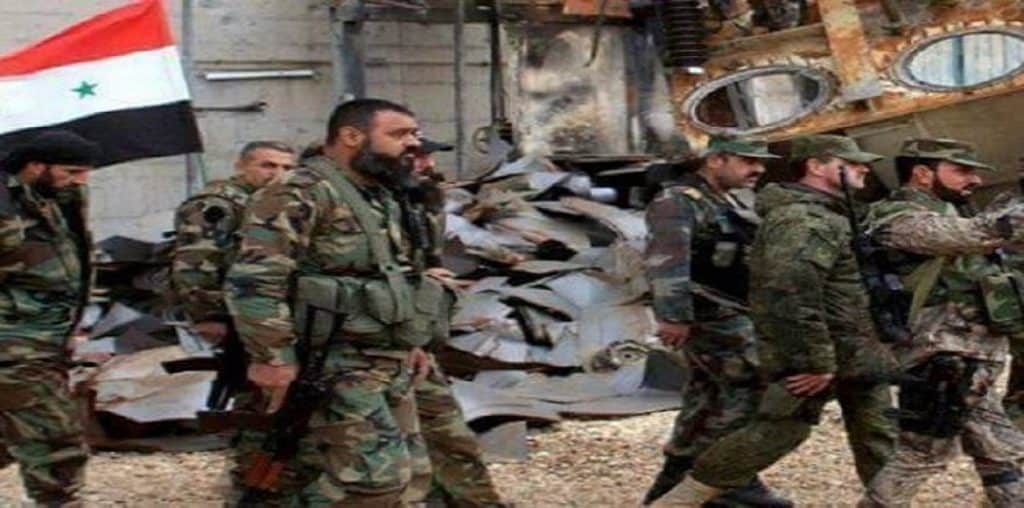By Denis Korkodinov
In the Syrian military theater of operations the year 2013 was a turning point. The Lebanese armed group Hezbollah and Iran intervened in the conflict. As a result of their active participation, the regime of Bashar al-Assad was able to gain an advantage in Aleppo, Homs and Damascus.
Hezbollah’s intervention allowed the Asadites to maintain control over the Syrian-Lebanese border, freeing an important transport artery in Al Quseir leading to Tal Qalah and the strategically important heights of the Kalamoun mountain range. In turn, Tehran began to assist the Syrian regime in training military personnel and drafting military strategies.
The strategic action of the defense forces of Bashar al-Assad’s was aimed to ensure a military presence in four directions simultaneously, in order to preserve control over a large part of Syrian territory even in the absence of communication between individual fronts.
In particular, the military presence of the Syrian government troops was provided in the province of Al-Hasaka, almost completely dispatched by Kurdish armed forces. And despite this, the Asadites and Kurds managed to conclude a non-aggression agreement, and therefore the main threat to the regime of Bashar al-Assad in this area was only the Islamic State.
The static point in this direction is the city of Deir ez-Zor, for which government forces did not stop fighting even when ISIS completely blocked the city and deprived it of all supply lines.
The key importance of Deir ez-Zor was due to the fact that out of it, the militants of the “Islamic State” could practically control virtually all the vital routes in Syria and substantially strengthen their positions.
Therefore, the official Damascus made a decision at all costs not to retreat from the city. The support of the Russian military aviation has significantly improved the situation and allowed to break through the blockade of Deir ez-Zor, which allowed the Syrian army to organize a series of successful offensive operations.
To date, Syria has not changed its strategy of the “four fronts”, which greatly facilitate the conduct of hostilities by the forces of Bashar al-Assad. In turn, Damascus still needs foreign intervention to gain advantage over opponents.
(The opinions expressed in this article are solely those of the author and do not necessarily reflect the views of World Geostrategic Insights).
Image Credit: AMM







